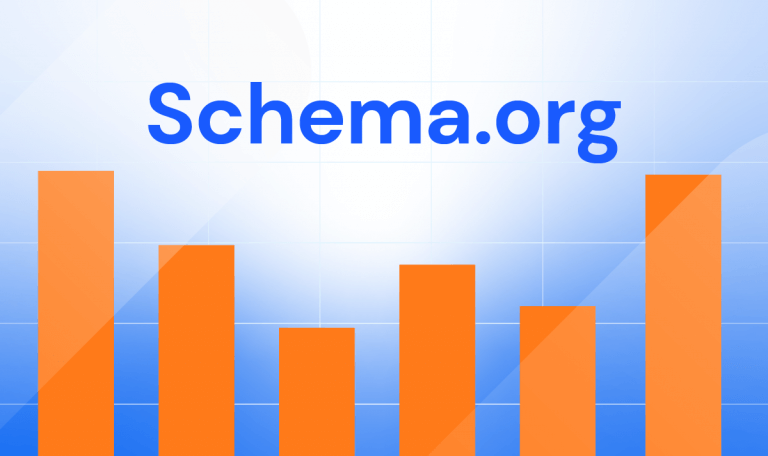The Most Popular Schema.org Markup Type

Maximizing your organic search traffic is one of the most important areas for ensuring your site is a success. You may feel as though you’ve already captured all the traffic you possibly can, but there’s always untapped traffic to target. Content is increasingly being viewed as the key element in driving traffic online, so just imagine the benefits of search engines aggregating rich information about your content to search results. It sounds quite appealing, but also rather complex. However, what if this led to your organic search traffic increasing by 30%? And what if all you had to do was implement a small change to your site’s code?
Well, this code does exist, it’s called “structured markup,” and surprisingly few websites have adopted it so far. Schema.org, the most popular type of structured markup, allows publishers to tag various database-driven content elements so that Yahoo, Bing and Google will recognize the significance of this content and display it accordingly. Schema is what powers “rich snippets,” those non-textual parts of Google’s search results that show product prices, publication dates, star ratings and even thumbnail images; at the same time Schema also offers the possibility of superior search visibility for those who adopt the standard. Schema.org is the site that provides a collection of schemas that webmasters can use to markup HTML pages in ways recognized by major search providers, and that can also be used for structured data interoperability. The top search engines including Bing, Google, Yahoo! and Yandex rely on this markup to improve the display of search results, making it easier for people to find the right Web pages.
One estimate from a few years back indicated that sites using Schema receive 30% more clickthroughs from Google than those without. And yet only 20% of websites have Schema markup in their code, according to stats touted by the Schema commission’s leadership.
Rolling Out Search within Search
In September, Google rolled out a new interface on its search results pages that allows users to easily navigate to specific content within websites. Here’s an example of what it looks like.
It’s called the sitelinks search box, and as you can see, it even supports autocomplete in many cases. But the only way you can use it to send searchers directly to your pages is if you use Schema’s SearchAction markup in your site’s code. To understand Schema’s adoption trajectory in further detail, we used SimilarTech to analyze the available source code of the entire web and track new implementations of Schema since the sitelinks search box rollout.
Who’s Newly Tagged for Snippets
Google’s new sitelinks search box release – and, along with it, the prospect of increased website traffic – has apparently prompted many websites to start using Schema.org. In fact, Similarweb’s sister brand SimilarTech’s data shows that 44,121 new websites started to use SearchAction tags in September.
As for the geographic locations of publishers using the markup, SearchAction Schema is most popular, by far, in the United States, followed by the UK and France. Note that Brazil’s ever-growing internet market has embraced markups in 4th position and demonstrates a healthy markup adoption in Latin America.
Broadening our analysis, below we can see usage across the entire internet of the nine Schema markup tags that are especially popular with marketers:
- Offer Schema
- WebPage Schema
- AggregateRating Schema
- Product Schema
- Review Schema
- Rating Schema
- SearchAction Schema
- MobileApplication Schema
- Website Schema
SimilarTech’s data shows that the most popular tag is the Offer markup and is currently used in 349,051 websites. The country with the most instances of Schema markup is the United States, with 28,930 sites currently using the SearchAction Schema.
Similarweb’s top one million websites with the highest rankings (our algorithm ranks sites according to traffic volume as well as pages per visit) reveal that, nor surprisingly, the most popular markup is SearchAction, with an adoption rate of 2.05%.
Looking at Similarweb’s top 100,000 sites, here too, SearchAction Schema reigns supreme, with an adoption rate of 2.17%.
The 10,000 top-ranked sites reveal a different story, though, with AggregateRating Schema’s 3.42% adoption rate being the highest. Although SearchAction has fallen to the middle of the road in this sample, ranked fourth for adoption, this tag still appears on 2.65% of the sites. SearchAction adoption, therefore, does still correlate with site rankings overall – it seems that the higher a site’s Similarweb ranking is, the more likely it is to use SearchAction Schema.
Taking Advantage of the Markup
Similarweb and SimilarTech have shown that the most popular markup on the internet. Interestingly, though, the sites with the most traffic are focusing on the SearchAction and AggregateRating Schemas; these markups have successfully been implemented into the top 10,000 websites and demonstrate the levels of traffic they can drive. With digital marketers currently hard at work sorting out their strategies for 2015, the timing of Google’s sitelinks search box improvements could not be better.
Following the uproar over Google’s move, back in August, to stop displaying authorship markup information on search results, it’s encouraging to see the search giant demonstrating its continued dedication to Schema. If Google is trying to understand your content better in order to send more relevant users your way, then it’s likely your site will experience higher engagement rates as a result – Schema, then, is the obvious way forwards.
In fact, Schema is already being described as the future of SEO and a tool that needs adopting early in order to stay on top. Adoption of Schema does not promise you an immediate boost in search traffic, but both publishers of quality content and searchers stand to gain from it. The beauty of Schema is that it allows users to make a more weighted, deliberate choice to visit one website over another and this means your site receives high quality and engaged traffic.
The #1 keyword research tool
Give it a try or talk to our marketing team — don’t worry, it’s free!















